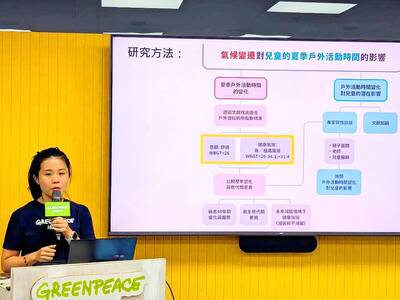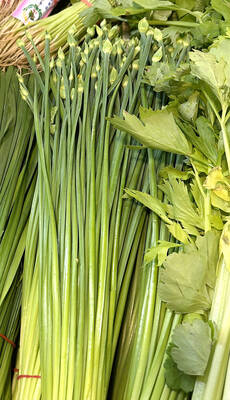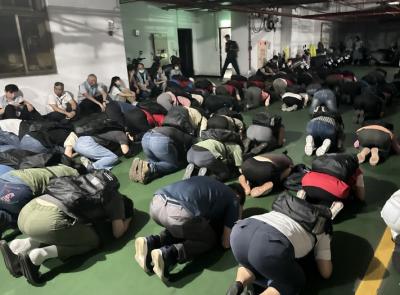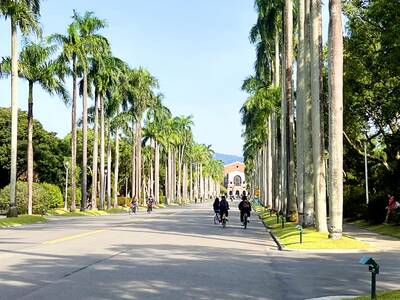From June 23, Taiwan Railways Corp (TRC) is to offer refunds without a handling fee for passengers who opt not to board trains delayed by 10 minutes or more.
Passengers who switch to another train or a different class seat within two hours of the original scheduled departure time would still be eligible for a refund on the unused ticket.
Moreover, if a train breaks down or a trip is canceled due to reasons beyond a passenger’s control, they would also receive a full refund without a handling fee.

Photo: Wu Liang-yi, Taipei Times
Passengers can apply for the refund within one year of the original intended departure date.
The new policies are to launch alongside a separate change that reduces the handling fee for refunding lost and later recovered tickets to 10 percent.
TRC passengers who lose tickets that are later found are eligible to apply for a refund for their replacement ticket within one year of the departure date.
Passengers can apply by submitting the found ticket and proof of repurchase, provided both journeys were for the same date, route and direction.
The refund incurs a 20 percent handling fee at a minimum of NT$20, which would be reduced to 10 percent and a minimum of NT$20 from June 23.
Moreover, starting today, passengers no longer need to refund and repurchase tickets when upgrading, but can pay the difference in fare to switch to a higher-class ticket.
TRC members could also take advantage of the new policy when using reward points to offset ticket prices.
TRC is set to increase ticket prices on June 23. It announced yesterday that it would launch the first phase of its “membership service optimization 2.0” plan, which would include an increase in reward point redemption limits.
When TRC members purchase reserved seat tickets and complete the transaction on the same day, the maximum point redemption limit would increase from 30 percent of the ticket price to 50 percent.

The government should improve children’s outdoor spaces and accelerate carbon reduction programs, as the risk of heat-related injury due to high summer temperatures rises each year, Greenpeace told a news conference yesterday. Greenpeace examined summer temperatures in Taipei, New Taipei City, Taoyuan, Hsinchu City, Taichung, Tainan and Kaohsiung to determine the effects of high temperatures and climate change on children’s outdoor activities, citing data garnered by China Medical University, which defines a wet-bulb globe temperature (WBGT) of 29°C or higher as posing the risk of heat-related injury. According to the Central Weather Administration, WBGT, commonly referred to as the heat index, estimates

The Taipei Department of Health’s latest inspection of fresh fruit and vegetables sold in local markets revealed a 25 percent failure rate, with most contraventions involving excessive pesticide residues, while two durians were also found to contain heavy metal cadmium at levels exceeding safety limits. Health Food and Drug Division Director Lin Kuan-chen (林冠蓁) yesterday said the agency routinely conducts inspections of fresh produce sold at traditional markets, supermarkets, hypermarkets, retail outlets and restaurants, testing for pesticide residues and other harmful substances. In its most recent inspection, conducted in May, the department randomly collected 52 samples from various locations, with testing showing

Taipei and other northern cities are to host air-raid drills from 1:30pm to 2pm tomorrow as part of urban resilience drills held alongside the Han Kuang exercises, Taiwan’s largest annual military exercises. Taipei, New Taipei City, Keelung, Taoyuan, Yilan County, Hsinchu City and Hsinchu County are to hold the annual Wanan air defense exercise tomorrow, following similar drills held in central and southern Taiwan yesterday and today respectively. The Taipei Mass Rapid Transit (MRT) and Maokong Gondola are to run as usual, although stations and passenger parking lots would have an “entry only, no exit” policy once air raid sirens sound, Taipei

Taipei placed 14th in the Quacquarelli Symonds (QS) Best Student Cities 2026 list, its highest ever, according to results released yesterday. With an overall score of 89.1, the city climbed 12 places from the previous year, surpassing its previous best ranking of 17th in 2019. Taipei is “one of Asia’s leading higher-education hubs,” with strong employer activity scores and students “enjoying their experience of the city and often keen to stay after graduation,” a QS staff writer said. In addition to Taipei, Hsinchu (71st), Tainan (92nd), Taichung (113th) and Taoyuan (130th) also made QS’ list of the top 150 student cities. Hsinchu showed the